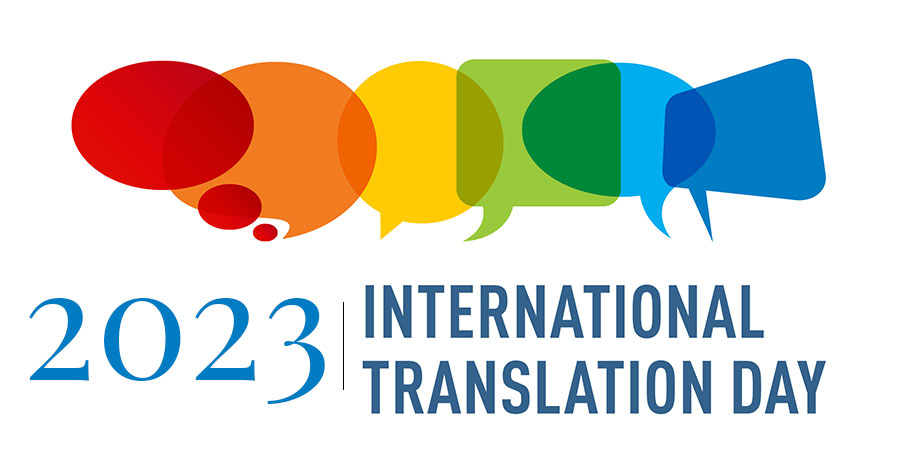Are you faced with the challenge of breaking down language barriers for effective communication? Imagine…
Celebrating International Translation Day 2023

International Translation Day, which is observed annually on September 30th, honors the crucial role that translators and interpreters play in bridging language and cultural divides. This day offers a chance to recognize their tremendous contributions to intercultural dialogue, worldwide communication, and mutual understanding.
Language is the window to the world, and translators are the unsung heroes who help us unlock its beauty and diversity. Every year on September 30th, the world comes together to celebrate International Translation Day, a day dedicated to recognizing the invaluable role of translators in bridging cultures, fostering communication, and preserving the richness of global languages.
The Origins of International Translation Day
International Translation Day has its roots in the feast day of St. Jerome, a revered figure in the world of translation. St. Jerome, a Christian scholar, and priest, is best known for his translation of the Bible into Latin, known as the Vulgate. His work not only made the Bible accessible to a wider audience but also set high standards for translation accuracy and clarity.
To honor St. Jerome’s contributions to translation and the vital role of language mediation, the International Federation of Translators (FIT) established International Translation Day in 1953. The date of September 30th was chosen as it marks the feast day of St. Jerome, who passed away on this day in 420 AD.
Why International Translation Day?
Celebrating Linguistic Diversity
One of the primary objectives of International Translation Day is to celebrate linguistic diversity. There are thousands of languages spoken worldwide, each with its own unique culture and identity. Translators and interpreters act as linguistic bridges, allowing people from different linguistic backgrounds to communicate and understand each other. By doing so, they help preserve and promote the richness of our global cultural tapestry.
Highlighting the Role of Translators and Interpreters
Translators and interpreters are often unsung heroes, working diligently behind the scenes to make communication possible across borders, languages, and cultures. International Translation Day provides an opportunity to acknowledge their contributions and express gratitude for their tireless efforts. It’s a day to shed light on the complexities of their work, which goes far beyond simply converting words from one language to another. Translators and interpreters must capture nuance, tone, and cultural context to ensure accurate and effective communication.
Promoting Cultural Exchange
Translation is a powerful tool for promoting cultural exchange. Through literature, films, art, and more, people from different corners of the world can access and appreciate the cultural treasures of others. Translators and interpreters make it possible for these cultural treasures to transcend borders, fostering mutual understanding and respect.
Fostering Global Communication
In our globalized world, effective communication is crucial for diplomacy, business, science, and countless other fields. International Translation Day serves as a reminder that we can’t underestimate the role of language in these realms. By recognizing the importance of translation, we encourage international cooperation and collaboration, ultimately contributing to a more peaceful and interconnected world.
Importance of Translation
The Power of Language and Communication
Language is the cornerstone of human communication and culture. It is through language that we share our thoughts, emotions, stories, and knowledge. However, the world is incredibly diverse, with thousands of languages spoken globally. Translation and interpretation serve as the bridge that allows us to traverse linguistic boundaries, enabling people from different backgrounds to connect, learn, and cooperate.
In today’s interconnected world, translation extends far beyond literature and religious texts. It plays a pivotal role in diplomacy, business, medicine, law, technology, and countless other fields. Without translation, global communication, diplomacy, and commerce would be severely hampered.
Technology’s Influence on Translation
In recent years, technology has revolutionized the field of translation. Machine translation tools, such as Google Translate and neural machine translation models, have become increasingly sophisticated. These tools, powered by artificial intelligence, can quickly translate text between multiple languages, making information more accessible and breaking down language barriers.
While machine translation has its advantages, it is essential to recognize that human translators still play an irreplaceable role. Machines may excel at translating straightforward text, but they struggle with nuances, idioms, cultural references, and context. Professional translators possess the cultural and linguistic knowledge necessary to provide accurate and culturally sensitive translations.
Preserving Cultural Identity
One of the challenges in translation is maintaining the authenticity and nuances of a culture’s language and identity. Skilled translators are not just language experts; they are cultural ambassadors. They ensure that when a text is translated, it not only conveys the words but also the essence and cultural context.
On International Translation Day, we celebrate the commitment of translators and interpreters to preserving cultural identities and promoting cross-cultural understanding. They help us appreciate the rich tapestry of languages and traditions that make our world so diverse and vibrant.
The Role of Translation in Diplomacy and Global Relations
Translation is a cornerstone of diplomacy and international relations. It allows nations to communicate, negotiate, and collaborate effectively on global issues. Accurate and reliable translations are essential in preventing misunderstandings, fostering cooperation, and building trust between countries.
In a world that faces complex challenges such as climate change, global health crises, and geopolitical tensions, the work of translators and interpreters in diplomacy has never been more critical. They enable leaders from different nations to engage in productive dialogue and work together to address these pressing issues.



